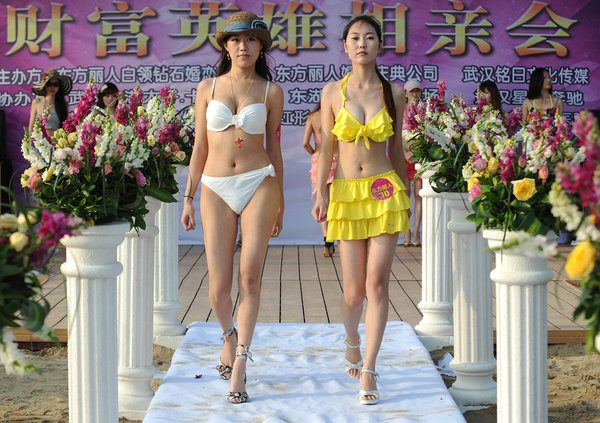Society
- Details
- By David Cao
- Hits: 794
China announced Sunday that it and Vietnam had agreed to hold talks on how to resolve conflicts arising from a sovereignty dispute over the South China Sea, an issue that has escalated tensions between them and led to angry protests by the Vietnamese.
The announcement came after Dai Bingguo, the senior Chinese official in charge of foreign affairs, met with Ho Xuan Son, a Vietnamese vice foreign minister and special envoy, on Saturday in Beijing, according to Xinhua, China’s state news agency.
Xinhua said both countries had agreed to “adopt effective measures to jointly safeguard peace and stability of the South China Sea” and to take seriously a multination pact reached in 2002 that was supposed to help resolve territorial disputes. The pact has long been ignored.
Read more: China and Vietnam Agree to Talks on South China Sea Dispute
- Details
- By David Cao
- Hits: 1064
Four would be too few. Ten would be too many. Five or nine would presumably produce an unaesthetic, wonky effect.
So the smiling attendants on the test run of the Beijing to Shanghai high-speed rail link revealed precisely six to eight of their teeth to display their pleasure as the train pulled out of the capital. It had, admitted chief conductor Gao Dan, taken considerable practice; in some cases, with chopsticks jammed between their jaws.
Extending 820 miles (1,318km), and spanning seven cities and provinces, China's landmark line was built in 39 months at a cost of 221bn yuan (£21.4bn). But as those gleaming white teeth attest, no detail of this massive project was too minor to be subject to official scrutiny.
- Details
- By David Cao
- Hits: 1212
June 26th, a container truck hit a minivan then a sedan, finally crush a 23-people bus in Shitingjiang Section of Chengdu-Mianyang Highway. This accident cause 6 died on the spot and 16 people injured.
- Details
- By David Cao
- Hits: 995

Girls looking for love walk down a catwalk during a matchmaking event in Wuhan, Central China's Hubei province on June 25, 2011. The event, billed "Meet the Rich Hero", has an eye-opening asking price for eligible male candidates: personal assets of at least 30 million yuan ($4.6 million) or annual income no less than one million yuan. And don't forget the 99,999 yuan invitation tickets, on the males only. There is no wonder to the tune of 60 girls swarmed the group blind date in the hope of finding the Mr. Right.
- Details
- By David Cao
- Hits: 881
China's top auditor said Monday that the debts of local governments at provincial, city and county levels exceeded 10 trillion yuan ($1.54 trillion) by the end of 2010.
Liu Jiayi, head of the National Audit Office (NAO), said that only 54 county governments out of more than 2,800 had zero debt.
More Articles …
Page 82 of 255
